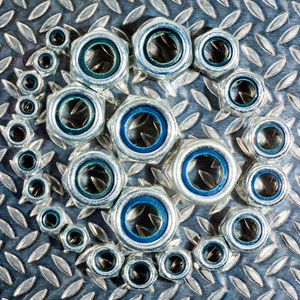
 EFI has an updated article on this topic published in 2019; click here to read the latest article.
EFI has an updated article on this topic published in 2019; click here to read the latest article.
Nylon hardware may seem like a contradiction in terms – after all, “hardware” is, well, hard ware, right? Isn’t all hardware metal? The short answer is “no” not all hardware is made from a particular metal or alloy. Hardware, and specifically fasteners, are often made from plastics, including nylon.
Nylon hardware — such as nylon fasteners — offers many advantages to electronics manufacturers, including outstanding insulating properties and corrosion resistance. In fact, nylon is the most popular plastic for manufacturing in general around the world. Nylon fasteners are ideal for a wide range of electronic products and systems because it is approximately half the weight of aluminum and yet provides good strength and excellent wear resistance.
From an appearance standpoint, nylon offers attractive product design options – it can take on lustrous, semi-lustrous or dull finishes without compromising its durability, enabling nylon fasteners to be an integral part of a product’s look and finish.
Technically, nylon offers a variety of features and benefits to complement specific uses. For example, nylon will melt, not burn, making it an attractive fastener material for fire-resistant products. Nylon also has better weathering properties and resists fading in sunlight, making it an ideal electronic fastener for outdoor applications. In addition to resisting sunlight it also stands up to corrosion and degradation from a wide range of chemicals, acids, and alkalis.
What exactly is nylon?
Because nylon is a plastic, it can be manufactured from a variety of plastics, depending upon its intended use. For even more rugged applications and enhanced impact resistance, nylon fasteners can even be filled with fiberglass (often called “glass-filled”), boosting its mechanical properties and overall performance. Here are some of the more popular plastics used to make nylon:
- Acetal enhances durability and minimizes water absorption
- Polyvinyl chloride (PVC) helps nylon resist natural elements such as rain and sunlight
- Polycarbonate enables nylon fasteners to withstand heat and electricity
- Polypropylene amplifies the positive effects other materials have on nylon
Because of all its positive properties, including its strength and durability, nylon is now a preferred fastener material for many electronics applications, including telecommunications, computers, automotive systems, and more.
Contact Electronic Fasteners today if you’d like to learn more!


